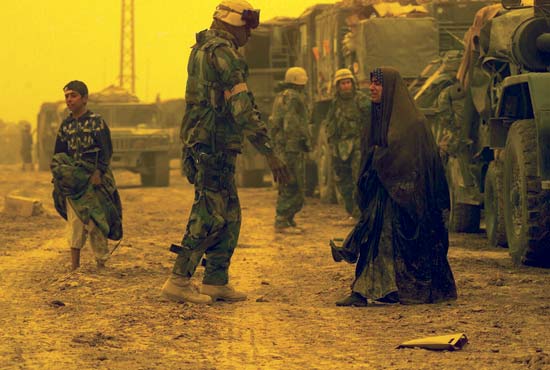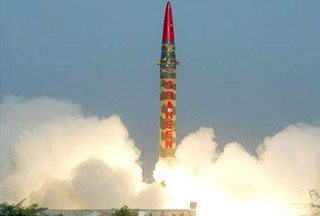The military has institutionalized lessons learned from the past decade of nonconventional warfare and will work to maintain doctrine and skills that allow the services to balance readiness for traditional defenses as well as irregular fighting, service leaders told a congressional committee today.
“In 2002, the nation effectively went to war with two armies,” Maj. Gen. Peter Bayer, the Army’s director of strategy, plans and policy, told the House Armed Services Committee. “One, comprised of general-purpose forces, was prepared to excel against traditional adversaries in direct combat. The second, comprised largely of special operations forces, was prepared to prevail in an irregular environment.
“The Army quickly learned that success on the battlefields of Afghanistan and Iraq required adaptation in both general-purpose and special operations forces,” Bayer said. The Army has adapted since then by institutionalizing irregular warfare capabilities and capacity across the force, he said.
Bayer was joined by Rear Adm. Sinclair M. Harris, director of the Navy irregular warfare office; Brig. Gen. Daniel O’Donohue, director of the Marine Corps’ capabilities development directorate; and Brig. Gen. Jerry P. Martinez, director for joint integration in the Air Force’s directorate of operational capability requirements. All four said readiness for irregular warfare is critical to future operations, and they described how each of the services has blended conventional and irregular warfighting doctrine and skills.
The Navy has leveraged its Navy Expeditionary Combat Command and established maritime partnership stations and maritime headquarters with maritime operations centers to meet demands, Harris said. “The evolution of intelligence and strike capabilities has enabled the Navy to meet urgent combatant commander requirements for counterterrorism and counterinsurgency operations,” he said.
The Navy Irregular Warfare Office, created in 2008, has led the institutionalization of irregular capabilities, Harris said.
The Marine Corps has designed a readiness force for post-Afghanistan operations – beyond 2014 – “that mitigates this hybrid threat, creates options and provides decision space for senior leadership” that considers joint, interagency and allied responses, O’Donohue said.
That force will be fundamentally different from the current or pre-9/11 force, O’Donohue said. “It draws on a rich history of innovations in irregular warfare, but is recast as a scalable crisis response force ready to counter complex irregular, conventional and hybrid threats – and the gray areas in between,” he said.
“Above all,” O’Donohue added, “we prepare to operate in and adapt to unpredictable, uncertain, complex environments at a moment’s notice.” He noted that irregular warfare is not new, and had the same definition in the Marines’ Small Wars Manual of 1940 as it does today.
As for the Air Force, Martinez said, the service is part of a larger, joint, coalition effort, and that works to supplement or improve host-nation and regional capabilities. “Air power directly contributes by establishing a secure environment in which the partner nation can flourish, ultimately without direct assistance,” he said.
By assessing, training, advising and equipping a troubled partner air force, airmen can contribute to that nation’s sovereignty and legitimacy while creating opportunities for economic growth, political development and stability, he added.
Like his counterparts at the hearing, Martinez said the Air Force’s challenge going forward will be how to balance the requirements for irregular warfare with those of traditional fighting, although he added that an increase in capabilities in one area usually helps the other.
The most important thing the Army can do to advance the institutionalization of irregular warfare is to continue educating its leaders, Bayer said.
“By developing adaptive and creative leaders, the Army ensures its ability to respond to a wide range of future tasks,” he said. “Maintaining a highly professional education system is crucial to institutionalizing the lessons of the past decade and ensuring that we do not repeat the mistakes of post-Vietnam by thinking that these kinds of operations are behind us.”
Future battlefields will be populated with hybrid threats, Bayer said, with combinations of regular and irregular tactics against enemies that include terrorists and criminal groups. The Army must remain flexible to operate against “whatever the threat” and in all types of settings, he said.
“As pressures for cuts in defense spending and force structures increase, the Army must assess which capabilities to emphasize, how many of each, and at what level,” he said. “Finding the right mix will be a challenge.”
The key to advancing the Army’s ability to respond to irregular threats will be to ensure the necessary force structure to support a versatile mix of capabilities in an uncertain future, he said.
The Army demonstrated flexibility in Iraq and Afghanistan with modular brigades that included a host of irregular warfare specialties, including information operations, public affairs and civil affairs, Bayer said.
All of the officers said foreign language and cultural training will grow as a requirement for service members.











